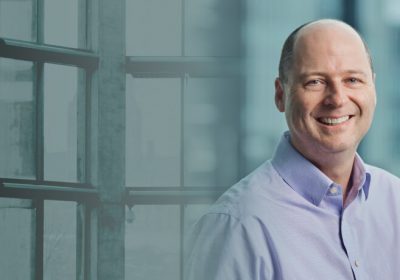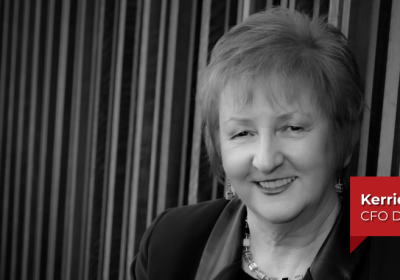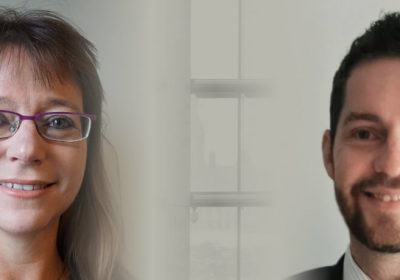
- Author: Nina Hendy
- Posted: November 30, 2022
Paving the pathway to growth through global expansion
Despite economic volatility, many finance chiefs are pushing ahead with global growth plans.
Why? For them, the economic headwinds ahead are eclipsed by the opportunities to capture market share, increase sales and tap into new sources of talent and materials. But too often, businesses trying to conquer new markets are built on cloud technologies that adapt and scale seamlessly alongside the enterprise.
It was a topic explored thanks so sponsorship by software company Oracle NetSuite, which has been a long-time valued supporter of the lunchtime CFO Series.
We heard from Cyril Desouza, global head of finance of intelligence sales enablement technology, Bigtincan, who opened up to James Solomons, global CFO, Xref, unpacking why finance chiefs are pushing ahead with global growth spans despite the global economic volatility.
Desouza came to the role of the content software company after strong finance experience in the technology space. He has helped the company revenue to gallop to $108 million FY2 after a period of strong organic growth and strategic acquisitions.
He talked the audience through his technology approach amid global growth, how he’s built his finance team and what he sees to be the challenges ahead.
He admits that despite his experience, there has been numerous learnings along the way. For him, the key is to encourage all facets of the business to keep him abreast of impending changes and challenges. This gives him greater visibility over acquisition costs that lay ahead, including legal and accounting costs.
Desouza, who has been through about a dozen or so acquisitions from a financial perspective, says the key will always be understanding how the technology in the coming being onboarded will fit into existing systems. Some of the acquisitions have been overlapped, creating a significant workload.
Integrating new people into an organisation amid an acquisition is also a process. “From the operational and commercial perspective, it’s important that we’re finding the right mix of people who will fit in straight away, and giving them the training before they come into the organisation,” he says.
It’s also about understanding the technology systems they have in place so that you can quickly migrate the system into your family of systems.
“What I’ve learnt through the acquisition process is that you need to get ahead of these things. You need to know if there’s an acquisition on the horizon at least six months in advance.
“You also need to make sure that the company as a whole isn’t absorbing too much at once, and that the growth is being carefully managed and that you’re managing those expectations,” he says.
Desouza has built an 18-person strong finance team over the last five years and is aiming to create a 24 hour finance function via strategic hires in key global markets. This ‘always on’ approach is crucial for a growing tech company, he explains.
“Setting up a 24-hour finance team by hiring half of the team to be working from the Asian Pacific and half in North America all working on NetSuite is about building efficiency in the team and not building a team in silos,” he explains.
Desouza has a statutory finance team that handles ASX reporting, half-years, full-years, and quarterly reporting, a team that handles tax for each region, and an operations finance team that handles day-to-day revenue, reconciliations and all the SaaS metrics. Finally, he has a management accounting team that’s always planning for the next thing on the horizon.
Ultimately, he sees his role as a support service for everything else happening within the business. “At times, it’s about getting the data as quickly as you can allows you to make really informed decisions,” he says.
He admits that at times, talent remains hard to find. “The key with hiring talent is to do hire ahead of time. It’s not easy to just get hires in, so you need to have a plan and have a vision for why you need certain personnel,” he says.
The company utilises Oracle NetSuite, which he chose due to its ability to integrate into other systems. “You don’t want an implementation that drags out for six to nine months, you want one that takes three months and then you can give the business real time numbers.”
A best practice approach when implementing new finance technology is to think about where you’re going to be in six months time, not where you are now, he says.
“The integrations in NetSuite are brilliant not just due to the multi-currency, multi-subsidiary functionality but also the benefit of having an inbuilt revenue module that has given us the ability to look at different options, such as using a CRM and utilising that with our current set-up,” Desouza says.
“Gone are the days for the end of the month for the figures, it’s about getting them as quickly as you can every day. You also need to be very transparent and trustworthy about what you see from your perspective,” he says.
He notes that staff turnover has settled. “Earlier this year, where our staff were getting counter offers and there were people leaving and coming, but we are well past that, and everything is slowing down. We’re being very specific with our hires, and we’re noticing a high retention rate for our staff. We’re also being very specific with exactly where we need to hire,” he says.
“Everyone now is bedding down and working together because everyone understands the next six months will be pretty tough due to the macroeconomic landscape which includes the tightening of monetary policy, so you need to be prudent with investment,” he says.
Solomons lastly asked how Desouza if he has any daily habits that contribute to his health and wellbeing.
The answer was yes – its crucial to get up and mobilise yourself in the morning to get the brain ticking over for the day ahead. For him, that’s usually a run. .








